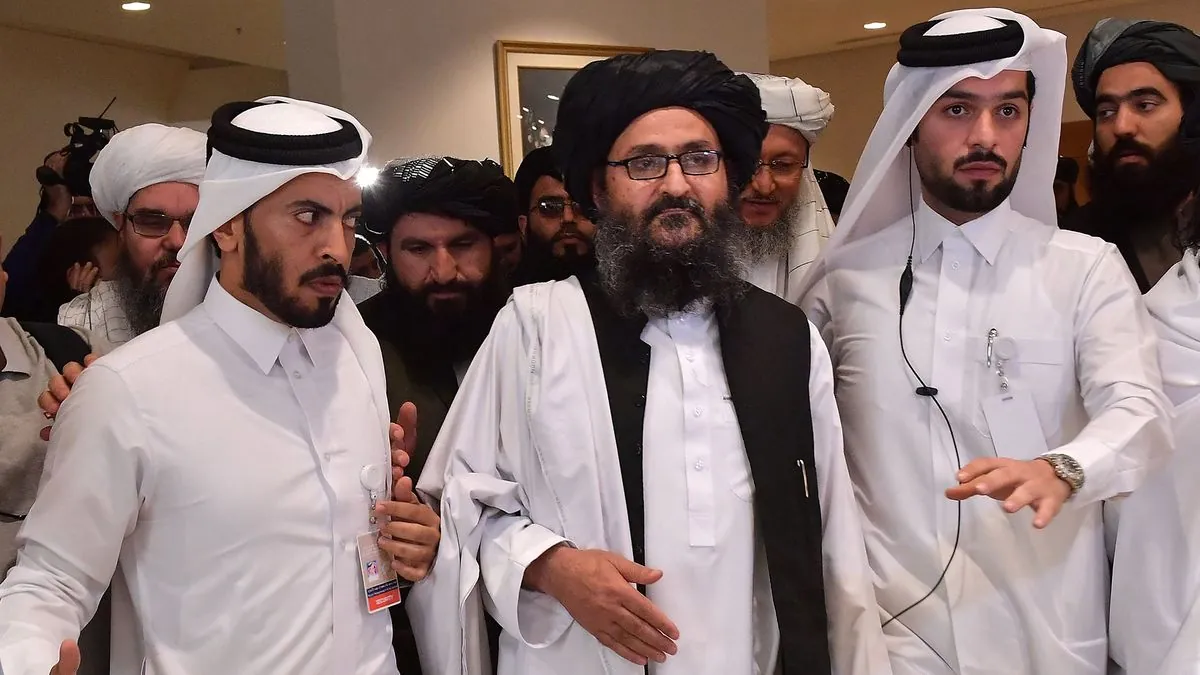Taliban Dismisses Beardless Officers, Destroys Musical Instruments in Afghanistan
Taliban enforces strict Islamic rules in Afghanistan, dismissing beardless security officers and destroying musical instruments. New measures planned for women's dress code amid international criticism.

In a recent development that underscores the Taliban's strict interpretation of Islamic law, the militant group has taken drastic measures in Afghanistan. Over the past year, hundreds of security officers have been dismissed for their inability to grow beards, while thousands of musical instruments have been destroyed.
Mohibullah Mokhlis, director of planning and legislation at the ministry for the propagation of virtue and prevention of vice, revealed that 281 beardless officers were identified and dismissed from the country's security services. Additionally, 450 military personnel had their hairstyles "corrected" to comply with Sharia law.
The Taliban's beard requirement stems from their interpretation of Islamic law, which mandates that Muslim men have a beard at least the "length of a fist". This rule has led to the prohibition of beard trimming or shaving in several provinces.

One former security officer, speaking anonymously, shared his experience: "I cannot grow a beard, and they constantly called and harassed me. Around three months ago, the commander told me that I could no longer stay in the unit because of my beard."
The crackdown on musical instruments has been equally severe, with 21,328 instruments destroyed in the past year. A former guitar teacher from Herat recounted a harrowing experience when morality forces raided his home:
"They knocked on the door, and I saw them through the window. I told my family not to open it, but one of them climbed over the gate and jumped into the yard. He unlocked the door and five more officers stormed into the house."
The teacher was subsequently beaten and accused of possessing "the devil's instruments."
These actions align with the Taliban's historical stance on music and entertainment. Since their emergence in the early 1990s, the group has banned music, television, and cinema, considering them un-Islamic. This strict interpretation of Islamic law is based on Deobandi fundamentalism and Pashtun tribal codes.
The ministry also reported that over 13,000 Afghans were detained for "immoral acts" in the past year, with half released after 24 hours. However, specific details about the alleged offenses were not provided.
The Taliban's policies have faced significant international criticism, particularly regarding restrictions on women's rights. Since regaining control in August 2021, the group has banned females from working with aid agencies, closed beauty salons, and prohibited women from entering parks or traveling without a male guardian. Girls over 12 have been excluded from education, a major obstacle to international recognition of the Taliban administration.
Despite these challenges, the Taliban is working on a new plan to enforce Islamic dress rules for women, overseen by Hibatullah Akhundzada, the supreme leader. This move comes as the group struggles to transition from an insurgent force to a governing body capable of running a modern state.
As of 2024, no country has officially recognized the Taliban's government, and the group continues to face internal divisions and economic challenges. The international community remains concerned about human rights violations and the ongoing humanitarian crisis in Afghanistan.


































